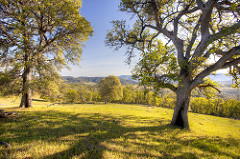BLM Ukiah Field Office Temporary Closure
Organization:
BLM Office:
Media Contact:
 UKIAH, Calif. – The Bureau of Land Management (BLM) Ukiah Field Office will be temporarily closed from July 27 through August 4 to allow staff time to move into the newly remodeled space at their current location. Because of the updates, the office address will change to 2550 N. State Street, Suite 2, Ukiah, California 95482. The office will reopen at 8 a.m., August 7.
UKIAH, Calif. – The Bureau of Land Management (BLM) Ukiah Field Office will be temporarily closed from July 27 through August 4 to allow staff time to move into the newly remodeled space at their current location. Because of the updates, the office address will change to 2550 N. State Street, Suite 2, Ukiah, California 95482. The office will reopen at 8 a.m., August 7.
“The redesigned office space will be a great benefit to both the public and employees,” says BLM Ukiah Field Manager Amanda James. “We look forward to returning to serving each of you and supporting America’s public lands.”
Visitors to the Ukiah Field Office may notice an updated front entrance, expanded public contact area with restroom facilities, and a multiple purpose conference room for meetings. The building houses both the BLM and the U.S. Geological Survey. The BLM has been located in this office space since 1994.
The BLM strives to be a good neighbor in the communities it serves, providing opportunities for various activities and recreation, including hunting, fishing, hiking, camping, wildlife viewing, and grazing and renewable energy development. The Ukiah Field Office manages approximately 270,000 surface and 214,000 acres of subsurface acres (mineral estate) of public land.
As stewards, the BLM manages public lands for the benefit of current and future generations, supporting conservation as the agency pursues its multiple-use mission. For more information, please contact the BLM Public Room at (916) 978-4400.
The BLM manages about 245 million acres of public land located primarily in 12 western states, including Alaska, on behalf of the American people. The BLM also administers 700 million acres of sub-surface mineral estate throughout the nation. Our mission is to sustain the health, diversity, and productivity of America’s public lands for the use and enjoyment of present and future generations.
